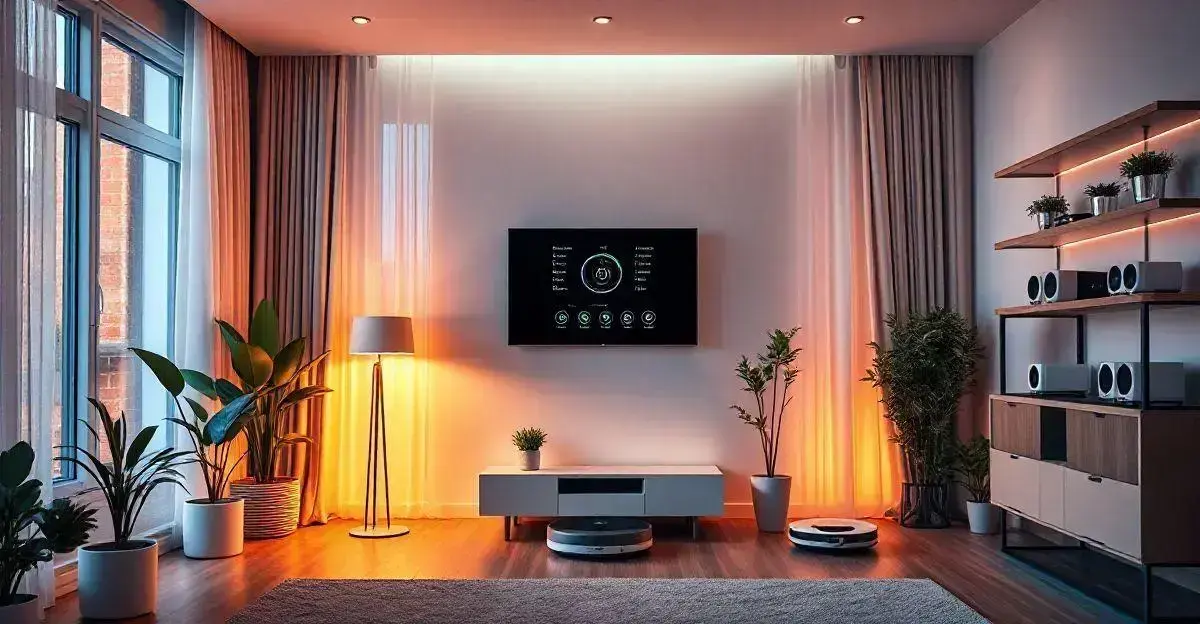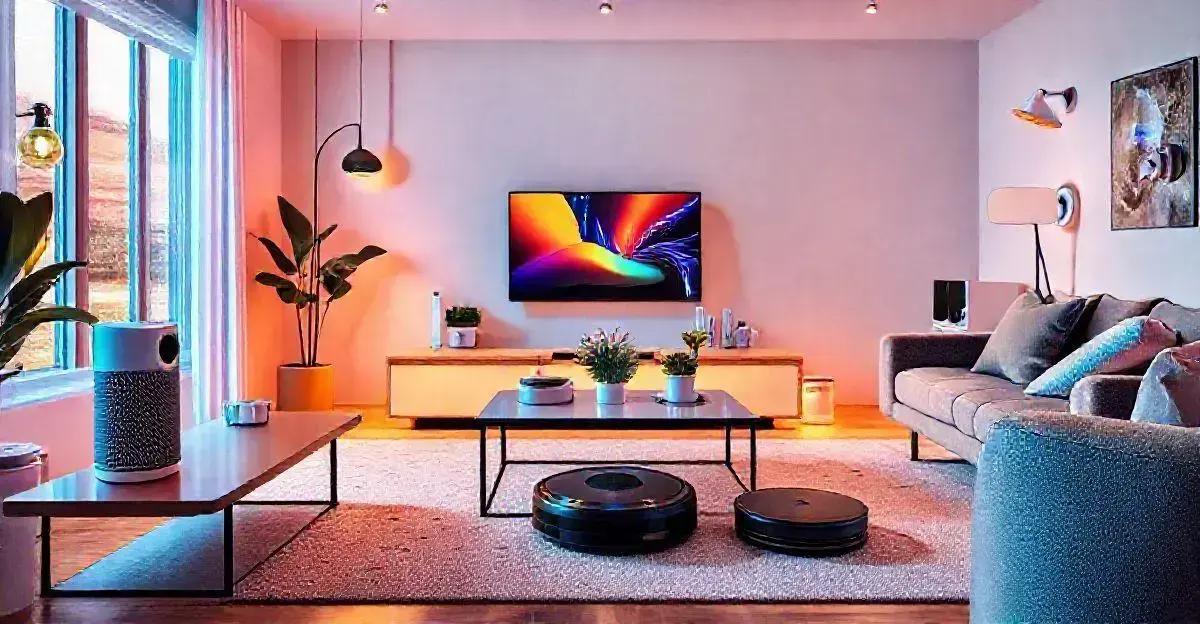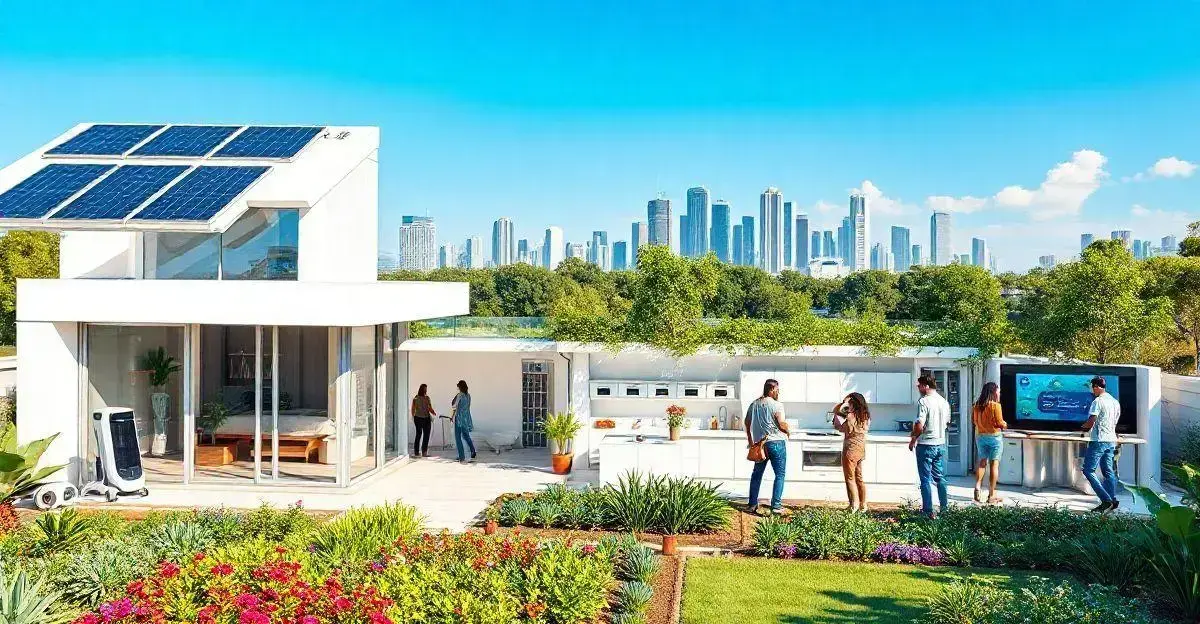The future of smart home tech is transforming how we live, making our homes more efficient, secure, and convenient. With advancements in AI and IoT, devices are becoming more interconnected, allowing for seamless control and automation of everyday tasks.
From energy-saving thermostats to enhanced security features, these technologies are making life easier and more comfortable. Despite some challenges, the potential for smarter, more efficient homes is vast.
Want to know more about what’s next for smart homes? Keep reading to find out how these innovations are shaping the future.
Overview of Smart Home Technology
Smart home technology refers to devices and systems that automate household tasks, improve energy efficiency, and increase home security. These technologies are often interconnected and can be managed remotely through smartphones, tablets, or voice assistants.
With advances in the Internet of Things (IoT), many devices can communicate with each other, creating a network that makes our homes smarter. This includes controlling lights, thermostats, and security cameras from one centralized app.
As we look toward the future of smart home tech, these integrations are expected to become even more seamless, offering more control and convenience.
Smart thermostats learn user preferences and adjust settings to lower utility bills while reducing carbon footprints.
Video doorbells, security cameras, and alarm systems can be monitored remotely, providing alerts for unusual activities, thus ensuring home safety.
Overall, smart home technology enhances convenience, safety, and energy efficiency, making our homes increasingly integrated with innovative solutions.
The Role of AI in Smart Homes

Artificial Intelligence (AI) plays a crucial role in smart homes by enhancing automation and convenience. AI systems learn user preferences, adjusting settings for heating, lighting, and security. As we move into the future of smart home tech, AI will continue to drive innovations that make homes smarter and more efficient.
For example, smart thermostats can analyze data to optimize energy usage based on your habits. Additionally, AI-powered voice assistants can control various smart devices through simple commands, making daily tasks more manageable.
As AI technology continues to evolve, homes will become even more responsive to our needs, offering greater efficiency and comfort. This integration of AI not only improves living conditions but also helps in monitoring systems for safety, ensuring peace of mind for homeowners.
Advantages of Smart Home Automation
Smart home automation offers numerous advantages that enhance our daily lives. First, it provides convenience by allowing you to control appliances and systems from anywhere.
Imagine being able to turn off lights or adjust the thermostat from your smartphone while at work. As we look to the future of smart home tech, this level of control will become even more seamless and integrated.
Additionally, smart home technology increases energy efficiency, as systems can optimize their performance based on usage. For instance, smart lights can dim or turn off when no one is in the room, saving electricity and reducing costs.
The future of smart home tech will further refine these systems, making them more responsive to individual needs and reducing overall energy consumption.
Enhanced security is another major benefit. Smart cameras and doorbells let you monitor your property from anywhere, providing peace of mind.
Lastly, home automation can simplify daily routines through scheduling, like having the coffee maker start automatically every morning.
Overall, the advantages of smart home automation make life easier, safer, and more efficient.
Top Smart Home Gadgets in 2023

In 2023, several smart home gadgets stand out for their innovation and functionality. Smart speakers, like the Amazon Echo or Google Nest Audio, allow users to control other devices with voice commands. Looking ahead, the future of smart home tech promises even more intuitive and responsive devices that integrate seamlessly into everyday life.
Smart plugs, such as the TP-Link Kasa Smart Plug, enable remote control of any appliance, making it easy to manage energy usage. For security, video doorbells like the Ring Video Doorbell provide live feeds and alerts for visitors.
Smart lighting, including Philips Hue bulbs, lets users customize lighting scenes and schedules. Thermostats, such as the Nest Learning Thermostat, adapt to your schedule to save energy.
Lastly, robotic vacuums like the iRobot Roomba offer convenient cleaning options, requiring minimal user input. These gadgets represent the best in smart home technology for a more connected and efficient living experience.
Challenges Facing Smart Home Technologies
Despite the many benefits of smart home technologies, there are significant challenges that users may face. One major issue is interoperability. Many devices come from different manufacturers, and not all are compatible with each other.
This can create frustrations for users who want to build a cohesive system. As the future of smart home tech evolves, it’s likely that these compatibility issues will be addressed, allowing for more seamless integration.
Additionally, security concerns are paramount. Smart devices can be vulnerable to hacking, leading to unauthorized access to personal data and home systems.
Furthermore, the complexity of installation can be a barrier for some homeowners. Not everyone is tech-savvy, and many may find setting up smart systems daunting.
There are also concerns regarding privacy. With devices constantly listening and recording, users must be cautious about what information they share.
Finally, the initial cost of purchasing smart home devices can be high, leading some to hesitate in making the investment.
Overcoming these challenges is essential for the future growth and acceptance of smart home technologies.
The Future Landscape of Smart Homes

The future of smart home tech is highly promising, driven by advancements in technology and user demands. As more people seek convenience and efficiency, the integration of artificial intelligence will play a key role in shaping how homes operate.
AI will enable devices to learn user preferences and automate tasks, making homes even smarter. Energy efficiency will improve as smart systems monitor usage and adjust settings accordingly, saving money and resources.
Security features are also expected to evolve, with more robust surveillance systems and remote monitoring capabilities. Furthermore, the trend toward IoT (Internet of Things) connectivity will allow homeowners to control all devices from a single application.
As technology continues to advance, we can anticipate a more seamless and integrated home experience in the coming years.
Final Considerations
The future of smart home tech will continue to evolve, offering greater efficiency, convenience, and security. As innovations emerge, users can expect improved interoperability among devices, enhanced AI capabilities, and advanced energy management solutions that further simplify daily life.
Despite challenges like privacy concerns and installation complexities, the overall benefits make smart homes increasingly appealing. These advancements are set to revolutionize how we live, making our homes not only smarter but also more adaptable to our needs.
Embracing these technologies will not only transform daily living but also pave the way for a more connected and sustainable lifestyle, bringing future possibilities into our homes today.